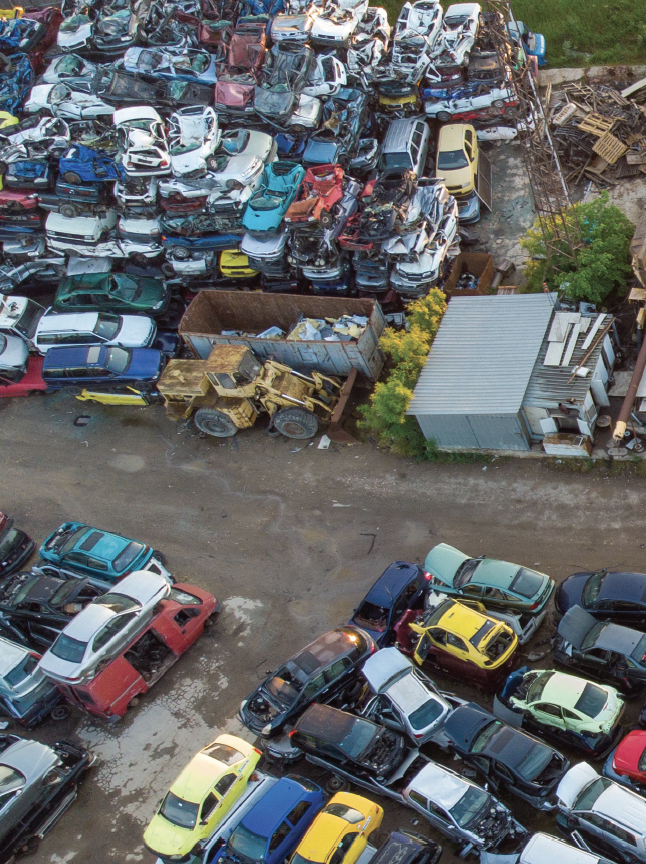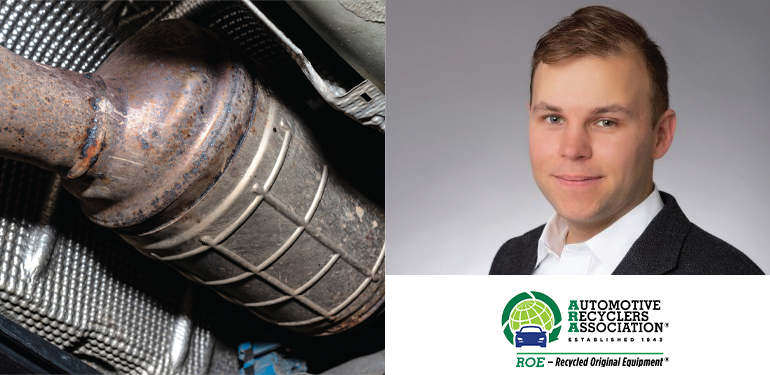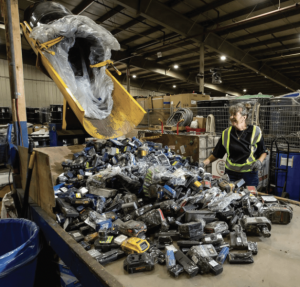Automotive Recyclers Association recognized as a critical player in combatting catalytic converter theft
By Emil Nusbaum
Over the last two years, the Automotive Recyclers Association (ARA) has been working with US legislators, regulators, law enforcement, industry stakeholders, and state affiliates on providing effective solutions to deter catalytic converter theft.
Professional automotive recyclers have been primary targets for catalytic converter theft groups because automotive recyclers are the largest collective owners of total loss/end-of-life motor vehicles. Automotive recyclers are some of the most impacted victims of catalytic converter theft for the following reasons:
• Catalytic converter thieves are endangering employees of automotive recyclers.
• Criminal groups are breaking into automotive recycling facilities to steal catalytic converters.
• Automotive recyclers are valuating vehicles and paying for vehicles with the expectation that catalytic converters will be on the vehicle—only to discover they are missing upon acquisition.
• The sheer volume of stolen catalytic converters being stolen is contributing to lower prices paid for legitimately obtained catalytic converters. Automotive recyclers do not generally purchase detached catalytic converters but purchase entire vehicles with the catalytic converters still attached.
ARA has been working on behalf of the professional automotive recycling industry to help combat catalytic converter theft and is deeply committed to assisting law enforcement and policymakers on implementing effective solutions to deter theft. Therefore, ARA has been recognized by policymakers and other industries as being an expert on the issue and is a leader in fighting catalytic converter theft through effective policy.
ARA recently sent the following letter to the U.S. House Energy and Commerce Committee.

The Automotive Recyclers Association (ARA), the international trade association representing the interests of over 1,000 auto recycling facilities in the United States and fourteen other countries around the world. The professional automotive recycling industry is a critical part of the automotive supply chain—in the U.S. alone, automotive recycling businesses employ 140,000+ people at 9000+ locations and generate $32 billion annually.

Professional automotive recyclers have been primary targets for catalytic converter theft groups because automotive recyclers are the largest collective owners of total loss/end-of-life motor vehicles.
The Automotive Recyclers Association write in support of H.R. 6394, the “Preventing Auto Recycling Theft Act” (PART Act), which is a bill to prevent the theft of catalytic converters from motor vehicles. Over the past few years, the price of the precious metals contained within catalytic converters has skyrocketed. This has caused catalytic converters to have become a primary target of thieves and organized criminal groups. Catalytic converter theft is such an epidemic that the National Salvage Vehicle Reporting Program notes that the total annual number of catalytic converters stolen may range from 600,000 to 700,000 units.
ARA appreciates Congress’s concern and interest in combatting catalytic converter theft. Professional automotive recyclers are the largest collective owners of total loss/end-of-life motor vehicles and are consequently ideal targets for catalytic converter theft groups. Many members of ARA have fallen prey to catalytic converter thieves who break-in to their facilities and steal catalytic converters from vehicles. In several cases, this has put our member companies’ employees at physical risk. Catalytic converter theft has also put negative pressure on the business model of automotive recycling because automotive recyclers are purchasing vehicles with the expectation that a catalytic converter will be present on a vehicle only to discover the catalytic converter has been stolen and removed from a vehicle. Again, automotive recyclers do not generally purchase detached catalytic converters but purchase entire vehicles with the catalytic converters still attached.
 ARA supports the underlying principles of the PART Act. The Association would like to see more funding allocated for enforcement efforts and the grant program for VIN stamping. In addition, professional automotive recyclers need assistance in determining whether the PART Act would permit the currently ubiquitous industry practice of marking vehicle parts with a unique stock number that is immediately traceable to a VIN. Several states have already passed catalytic converter anti-theft laws that support the traceability of stock numbered detached catalytic converters from licensed professional automotive recycling facilities.
ARA supports the underlying principles of the PART Act. The Association would like to see more funding allocated for enforcement efforts and the grant program for VIN stamping. In addition, professional automotive recyclers need assistance in determining whether the PART Act would permit the currently ubiquitous industry practice of marking vehicle parts with a unique stock number that is immediately traceable to a VIN. Several states have already passed catalytic converter anti-theft laws that support the traceability of stock numbered detached catalytic converters from licensed professional automotive recycling facilities.
The Association also has requested clarity on the bill’s restriction on selling partial or de-canned catalytic converters as this has relevancy to catalytic converter smelters and processors.
Unfortunately, catalytic converter theft commonly involves the sale and transport of illegitimately obtained detached catalytic converters across state lines. Therefore, a federal framework is needed to standardize the marketplace for detached catalytic converters entering the stream of commerce.
The PART Act will help reconcile issues associated with the transport of illegitimately obtained detached catalytic converters across state lines and will aid law enforcement efforts to combat catalytic converter theft nationwide. ARA and professional automotive recyclers are deeply committed to combatting catalytic converter theft and have been actively involved with state working groups working on metals theft prevention efforts. ARA is also a member of the International Association of Auto Theft Investigators’ Subcommittee on Catalytic Converter Theft Prevention. As a result, automotive recyclers are a natural and necessary industry that can lend its expertise to positively contribute to curbing the theft of catalytic converters.



























